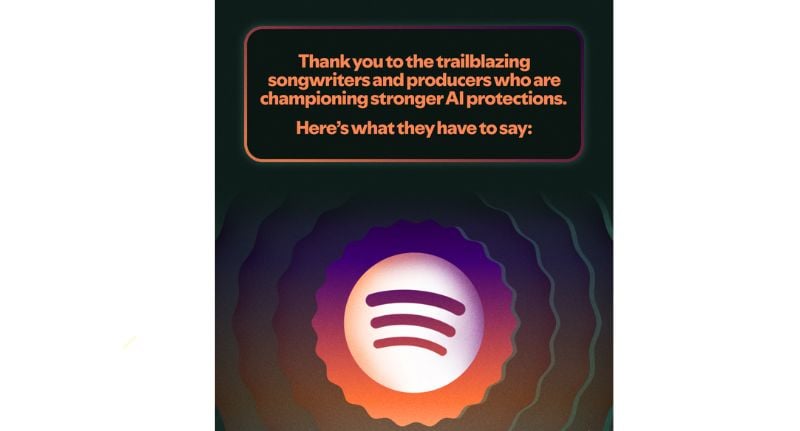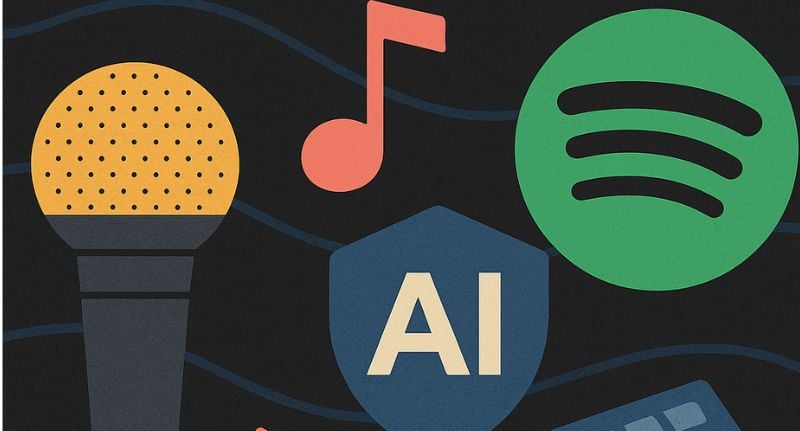Spotify has moved to shore up its defences against generative AI misuse, announcing new rules and systems aimed at protecting artists, producers and listeners.
The update arrives as the company revealed it removed more than 75 million spam tracks in the past year, underscoring the scale of the problem.
The platform acknowledged that while technology has always shaped the music industry – from multitrack tape to Auto-Tune – the pace of generative AI adoption has been unusually disruptive.
Spotify framed the challenge as a balancing act: enabling responsible creative experimentation while clamping down on impersonation, spam and deception.
Stronger protections against impersonation
Spotify has clarified how it will handle AI-powered voice clones and other forms of unauthorised impersonation. The company said: “Vocal impersonation is only allowed in music on Spotify when the impersonated artist has authorised the usage.”
That means artists will have clearer avenues to challenge AI-generated recordings that mimic their voices without consent.
Beyond voice cloning, Spotify is also tackling fraudulent uploads, where music is wrongly attributed to another artist’s profile across streaming services.
To address this, it is working with distributors to stop mismatched content earlier in the process and has committed to reducing review wait times.
The company stressed that this is about safeguarding artist identity and ensuring creative control.
“Some artists may choose to license their voice to AI projects – and that’s their choice to make. Our job is to do what we can to ensure that the choice stays in their hands,” Spotify said.

New spam filtering system
Alongside impersonation, Spotify is sharpening its tools against music spam. With annual royalty payouts jumping from US$1 billion in 2014 to US$10 billion in 2024, spammers have more incentive than ever to game the system.
The company’s new music spam filter will target common abuse tactics such as mass uploads, duplicates, SEO hacks and artificially short tracks.
The system will tag suspect content and stop it being recommended to users. Importantly, Spotify says the rollout will be gradual, with careful testing to avoid penalising legitimate creators.
Left unchecked, these tactics dilute royalties and take attention away from artists playing by the rules. “Our new music spam filter will protect against this behaviour and help prevent spammers from generating royalties that could be otherwise distributed to professional artists and songwriters,” Spotify explained.
Transparency around AI in music credits
Spotify is also moving to give audiences more clarity on how AI is used in the music they stream.
The company will support a new industry standard for AI disclosures in track credits, developed through DDEX, allowing artists and rightsholders to indicate whether AI contributed vocals, instrumentation or post-production.
This approach reflects the reality that AI usage in music is often partial, not absolute – and avoids the pitfalls of binary “AI” or “not AI” labels.
“This change is about strengthening trust across the platform,” Spotify said, “not about punishing artists who use AI responsibly or down ranking tracks for disclosing information about how they were made.”
Spotify is working with a broad coalition of partners on the rollout, including Believe, CD Baby, DistroKid, FUGA, Downtown Artist & Label Services, EMPIRE and more. The aim is for AI disclosures to be displayed consistently across all major services, creating a level playing field for transparency.
A bigger industry shift
For Spotify, the initiatives are part of a long-term effort.
The company points to a decade of investment in tackling spam, though the recent explosion of generative AI has raised the stakes. With the industry still grappling with the implications of deepfakes, content farms and automated music creation, the platform is betting that clearer rules and shared standards will be key to keeping user trust intact.
“The future of the music industry is being written, and we believe that aggressively protecting against the worst parts of Gen AI is essential to enabling its potential for artists and producers,” the company said.
